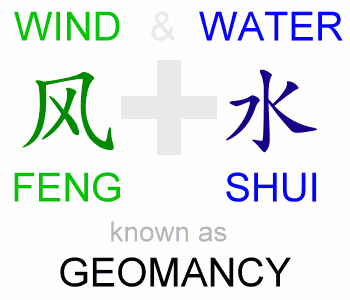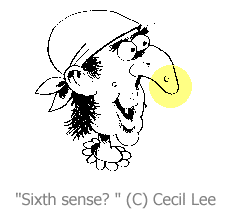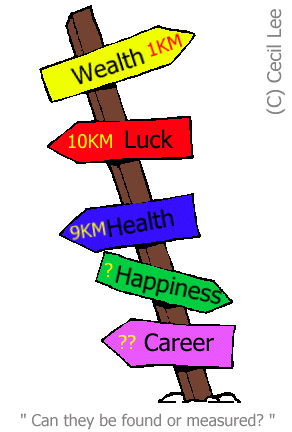Introduction to Feng Shui
Free Module 1: Principles of Feng Shui
Chapter 1: Introduction to Feng Shui

The words Feng Shui in Chinese literally means Wind and Water. In Asia, it is popularily called Geomancy. And a practitioner is known as a Geomancer. Geomancy emcompass not only Feng Shui but also the various other Chinese divinity methods.
The Chinese have long observed that some surroundings are better then others, and for centuries they have used geomancy to improve the quality of life.
Today, Feng Shui has evolved into a refined art used to enhance luck and well-being through the modifications of layout and orientation of work-places and homes and is gaining popularity in the West.
The aim of Feng Shui is a complete harmony and a deep sensitivity with the natural order. Many aspects of Feng Shui are based on intuition (sixth sense) and commonsense.
A caricature showing the use of `intuition' or sixth sense:-
 |
For example, as the probability of a fire starting in the kitchen is much higher than in other rooms;it was felt that one should not sleep in a bedroom which is above the kitchen:-
 |
There once a Feng Shui practitioner who had advised his client to walk up to his office at the 18th storey. He faithfully followed the advice until he retired at 55 years of age as a clerk for over 25 years!
 |
We need to get a right start in the home and office with good advice on Traditional Authentic Feng Shui. Good Feng Shui concepts are designed to alter the environment to our advantage.
 |
- Hits: 106245